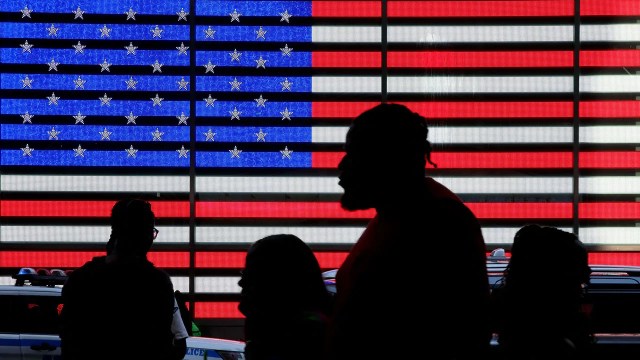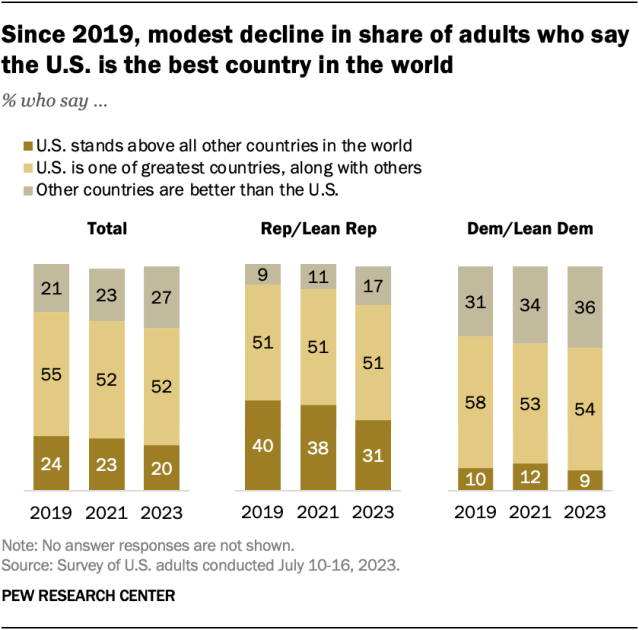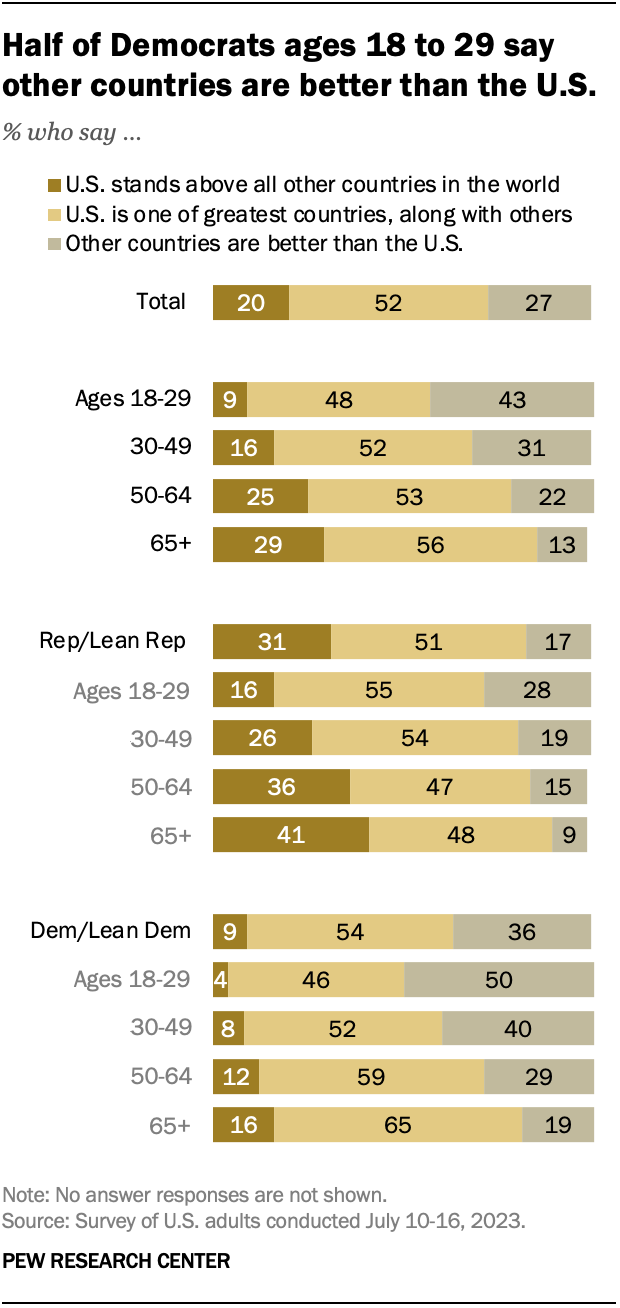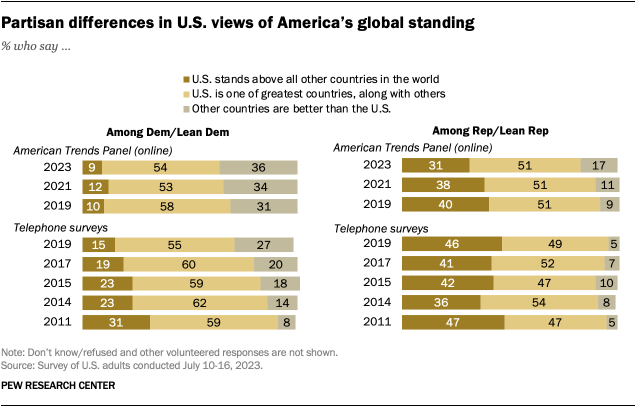
The share of Americans who say the United States stands above all other nations in the world has declined modestly over the past four years, according to a new Pew Research Center survey. There has also been an increase in the share who say other countries are better than the U.S.
Pew Research Center conducted this study to understand the American public’s view of the United States’ standing in the world. For this analysis, we surveyed 8,480 U.S. adults from July 10 to 16, 2023. Everyone who took part is a member of the Center’s American Trends Panel (ATP), an online survey panel that is recruited through national, random sampling of residential addresses. Recruiting our panelists by phone or mail ensures that nearly all U.S. adults have a chance of selection. This gives us confidence that any sample can represent the whole population (see our Methods 101 explainer on random sampling).
To further ensure that each survey reflects a balanced cross-section of the nation, the data is weighted to match the U.S. adult population by gender, race, ethnicity, partisan affiliation, education and other categories. Read more about the ATP’s methodology and the methodology for this report.
Here are the questions used for this analysis, along with responses, and its methodology.

Today, two-in-ten Americans say the U.S. “stands above all other countries in the world.” About half (52%) say the U.S. is “one of the greatest countries, along with some others,” while 27% say “there are other countries that are better than the U.S.”
Opinions about the nation’s global standing have changed slightly since 2019. That year, 24% said the U.S. is the single greatest nation, 55% said it is one of the best countries, and 21% said other countries are better than the U.S.
Much of this recent change in attitudes has come from Republicans and Republican-leaning independents. Four years ago, 40% of Republicans said the U.S. stands above all other nations, compared with 31% today. And the share of Republicans saying other countries are better has nearly doubled, from 9% to 17%.
At the same time, Democrats and Democratic leaners have grown slightly more likely to say there are other countries that are better than the U.S.: In 2019, 31% said this, compared with 36% today.
Age divides in attitudes about U.S. persist

As has been the case for more than a decade, views of how America compares with other countries differ by age. Roughly four-in-ten adults ages 18 to 29 (43%) say other countries are better than the U.S. – the highest share of any age group.
Age differences are evident within both partisan coalitions. Half of Democrats under age 30 say other countries are better than the U.S., as do 40% of those 30 to 49. By comparison, just 25% of Democrats 50 and older say this.
Among Republicans, 28% of adults under 30 say other countries are superior to the U.S., compared with 12% of those 50 and older. And younger Republicans are considerably less likely than older Republicans to say the U.S. is the greatest nation: 16% of those ages 18 to 29 say this, compared with 26% of those 30 to 49, 36% of those 50 to 64 and 41% of those 65 and older.
How partisans’ views of U.S. standing have changed over time
Republicans have long been more likely than Democrats to see the U.S. as the single greatest nation, while Democrats have been more likely to say there are other countries that are better. Still, the most frequent response among both Republicans and Democrats continues to be that the U.S. is one of the world’s greatest countries, along with others.

The share of adults saying the U.S. stands above all other countries dropped significantly in telephone surveys conducted between 2011 and 2019. While the decline in views of the United States’ global standing was concentrated among Democrats during these years, the decline over the past four years is concentrated among Republicans.
Note: Here are the questions used for this analysis, along with responses, and its methodology.



